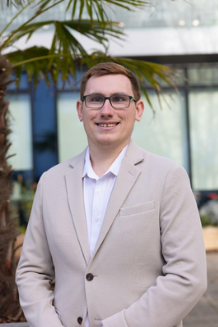
As the midpoint of negotiations passes there is widspread frustration at both the slow progress achieved thus far and the lack of a clear plan to overcome barriers that were evident at last year’s talks in Busan and remain just as problematic today. Sam Winton, observing the negotiations in Geneva, looks for a way forward
‘A lot of effort has been made this week but progress has not been sufficient. Despite 2.5 years of opportunity for delegations to make proposals and ample opportunity for the expression of views, members are once again adding new brackets, more controversial concepts and further divergence. There is no more time to continue adding positions and concepts. We have now arrived at a critical stage where genuine progress must be made.’
The words above are not mine, but a summary of the comments made by Chair of the INC, Ambassador Luis Vayas in Saturdays stocktaking plenary. If these comments seem familiar this is because they are an almost verbatim repeat of the comments and views he expressed in the midway stocktaking plenary which was held at INC 5 in Busan 9 months ago. These comments are not a surprise to anyone but the committee appears to be bound in a state of cognitive dissonance where it accepts that the current situation is untenable but appears unable to do anything to address it. Suffice to say, major course corrections are needed.
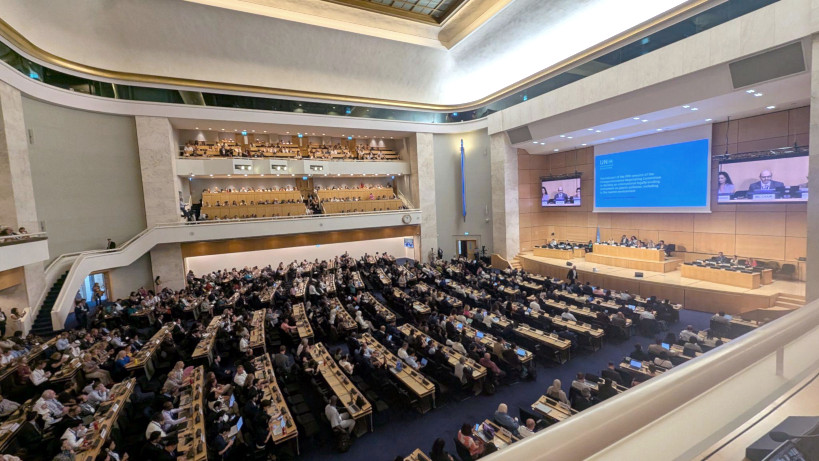
Delegates reconvene in the Assembly Hall at the Palais des Nations for Saturday’s stocktaking plenary Photo: Sam Winton
Taking a step back, Friday’s negotiations were a mix of informal consultations behind closed doors and a scramble in contact group meetings to get a ‘snapshot text’ prepared for Saturday’s stocktaking plenary. Meetings of Contact Groups 1 and 2 which I attended should therefore have been fairly simple and uncontroversial. Instead of debating substantive measures the groups just needed to receive feedback from the various informals and confirm their consent for the latest version of the text to be forwarded to the plenary. As noted above, this text was simply a snapshot and Co-Facilitators made it very clear that forwarding of text did not imply that it had been agreed. By INC 5.2 I have learnt that things which appear simple rarely are, but even I was surprised to see the scenes which unfolded in Contact Group 2.
The group moved through the articles under its remit in order, hearing current progress and with Co-facilitators asking 1 simple question. Can this latest progress be placed in the ‘snapshot text’? For Article 7 – Emissions and Releases, informals had discussed a single paragraph with all others remaining untouched. Unfortunately, a group of members who are philosophically opposed to this Article chose to attempt to block this text being forwarded with no clear reason. A 30 minute discussion on the floor turned into a nearly 2 hour huddle which took place outside the room with an agreement finally reached to forward this text with a footnote which effectively said that some countries were unhappy with this article and wished to see it removed. During this huddle, conversations in the Contact Group proceeded on other articles, none of which had made significant progress. Thankfully Articles 8 and 9 were swiftly approved but for Article 10 one member refused to agree to it being forwarded unless members blocking Article 7 removed their objections, creating a dangerous precedent of holding articles hostage as highlighted by one member, and eroding any small amount of goodwill between certain members. After nearly 4 hours, with many members voicing deep concerns about what they were witnessing, we finally had an agreement and the Contact Group was able to conclude its first week of work.
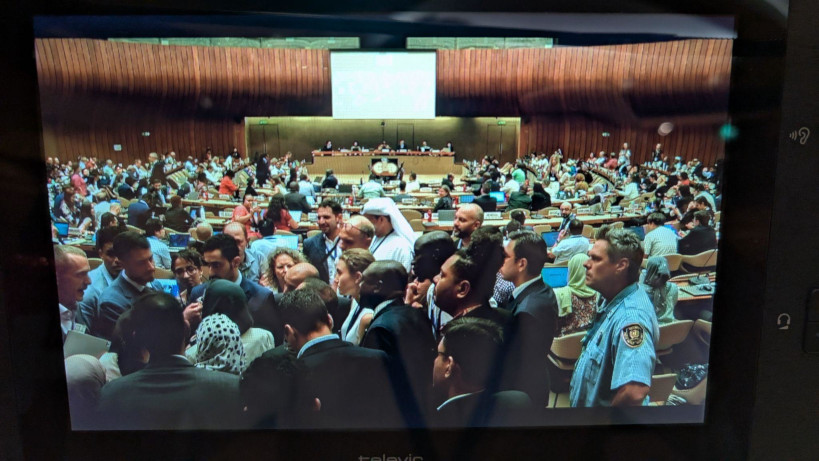
We’ve seen this before! Delegates once again engaged in a tense huddle, this time to resolve, not a controversial matter of substance, but simply whether to accurately represent the progress made to the stocktaking plenary Photo: Sam Winton
In Contact Group 1 events were smoother though not without challenge. There were some efforts to block the movement of text but these never gained significant momentum. Frustrations in this group focussed on the way informal consultations were being conducted. While minimal progress has become a clear theme, the major frustration here centered around the rooms used which, for one set of informals, had been too small, preventing some delegations from being able to attend. For this to happen at such a critical stage of negotiations is unacceptable, a fact acknowledged by the Co-Facilitators, and there has been a commitment made to use larger rooms for future informals. Despite these challenges, Contact Group 1 concluded its first week of work in relatively efficient fashion.
When the ‘snapshot text’ was released in the early hours of Saturday morning, a stark picture of progress was painted, and this was laid bare in Saturday’s stocktacking plenary. The document has once again ballooned in both length and the number of square brackets with the 300 square brackets present in the original Chairs Text now numbering 1488. On Tuesday, Ambassador Vayas had asked for as many articles as possible to be ready for legal review. Three of the four contact groups have failed to advance sufficiently to send any articles and Contact Group 4 is only ready to send Articles 31 and 32. That 2 articles are ready is welcome news but this progress is clearly insufficient. Responses from the floor were a mix of frustration and outright anger. Kenya felt that ‘We are not closer to an agreement’, Palau bemoaned a ‘web of informals’ and ‘procedural irregularities’ which show little progress. Many members voiced that we need to find new ways of working but I see little evidence that there is a plan to facilitate this beyond simply requesting members to act in good faith.
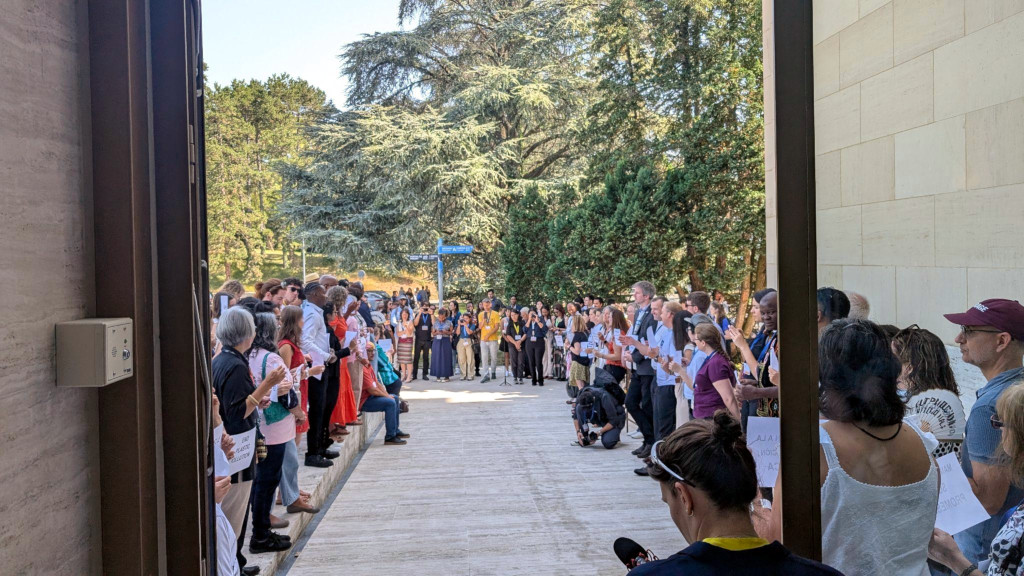
Observers engaged in a silent protest on Saturday, lining the path to access the Assembly Hall and holding signs asking members to ‘Fix the process, keep your promise, end plastic pollution’. The jury is still out as to whether the committee will heed this message but observers are making every effort to hold negotiators to account Photo: Sam Winton
In their intervention, the representative of Fiji repeated a line they used in Busan, ‘To break free from plastics we need to learn to break free from brackets’. I have already referenced Ambassador Vayas’ comments being reminiscent of the stocktake in Busan but the similarities run deeper. This whole stocktaking plenary was nearly identical to the one held 9 months ago and I along with several delegates feel a sense that we are experiencing groundhog day. In the words of the representative of the Cook Islands, ‘Brackets keep piling up, as stubborn as plastic pollution itself’, just as they did in Ottawa, and then again in Busan, and every time a new, cleaner iteration of text is released, the brackets and text submissions pile up again. With just 4 days of negotiations left this surely cannot continue.
Despite what has been a gloomy set of reports from this opening week in Geneva, I will share probably my first positive note of the week. After the morning plenary on Saturday, contact groups resumed and, in Contact Group 1 there was progress. Informal consultations had completed a full edit of all paragraphs in Article 3, with all members feeling their views were represented. The text, now 9 pages long for a single article, is a broadly unreadable compilation text but critically, a way forward has been agreed. The Co-facilitators of the Informal have been mandated to present bridging proposals to members, which could be accepted or rejected when presented at future informal consultations. I have significant doubts about whether this work can be completed in time but this is a critical and controversial article which deals with both products and chemicals of concern. To see, at least, a way forward which puts the drafting pen in the hands of a small number of mandated co-facilitators instead of 180 countries is an improvement in the working methods.
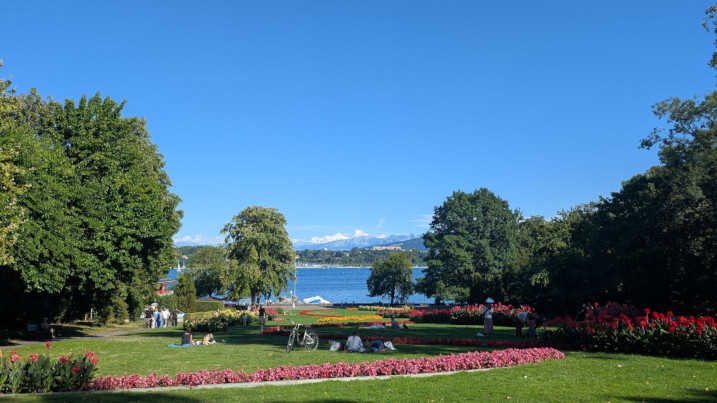
A day of rest. While national delegations have been meeting behind closed doors, I took the opportunity to spend Sunday by the lake with fellow delegates. Networking is afterall important Photo: Sam Winton
On Sunday members have been busy holding both regional and informal consultations behind closed doors and we will see how they have progressed when this is reported back to contact groups on Monday. I have been asked over the weekend if I feel a treaty, particularly an ambitious treaty, is still realistic for this INC and, honestly, I struggle to see how it can be achieved. We cannot yet give up hope however. As much as I enjoy these INCs, the representative of Panama was right to say that ‘we are not here for diplomatic tourism’. If there is any hope of this being the final INC we must make rapid progress and if the early reports back from Contact Groups on Monday are not exceedingly positive, I would expect another plenary to be organised in short order to have some very honest conversations about our intentions and realistic targets for the rest of the week.
BIO
I am a postgraduate researcher working for the Revolution Plastics Institute at the University of Portsmouth since its creation in 2020. In 2023 I commenced my PhD studies titled ‘To what extent has the structure and implementation of the INC process facilitated the development of an effective Global Plastics Treaty?’ at the University of Portsmouth and the University of Surrey. This research will focus on how the structure and implementation of the INC process impact the treaty’s outcome, consider how the inclusion of stakeholders in the process influences a fair and just treaty, and investigate the implications of the final text for members. With a background in environmental hazards and community preparedness, my main research focus is working with communities and a broad range of stakeholders to tackle environmental challenges. I have also worked with international organisations to create policies to tackle the global plastics problem and facilitate sustainable development.
